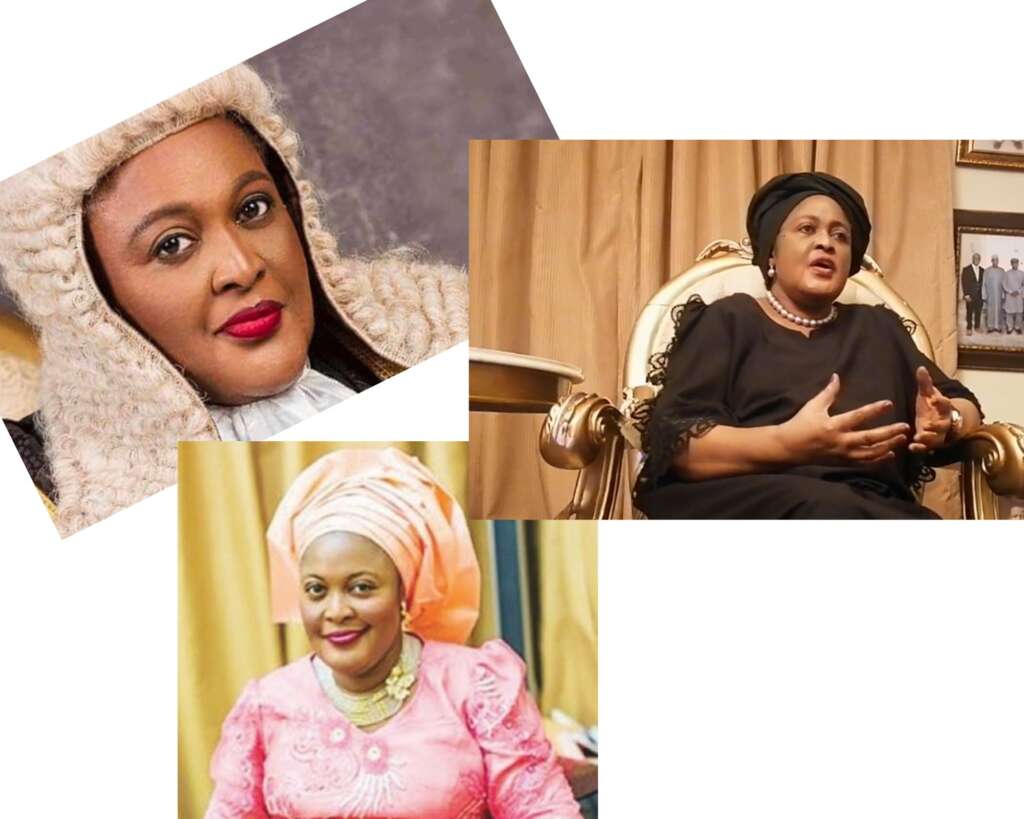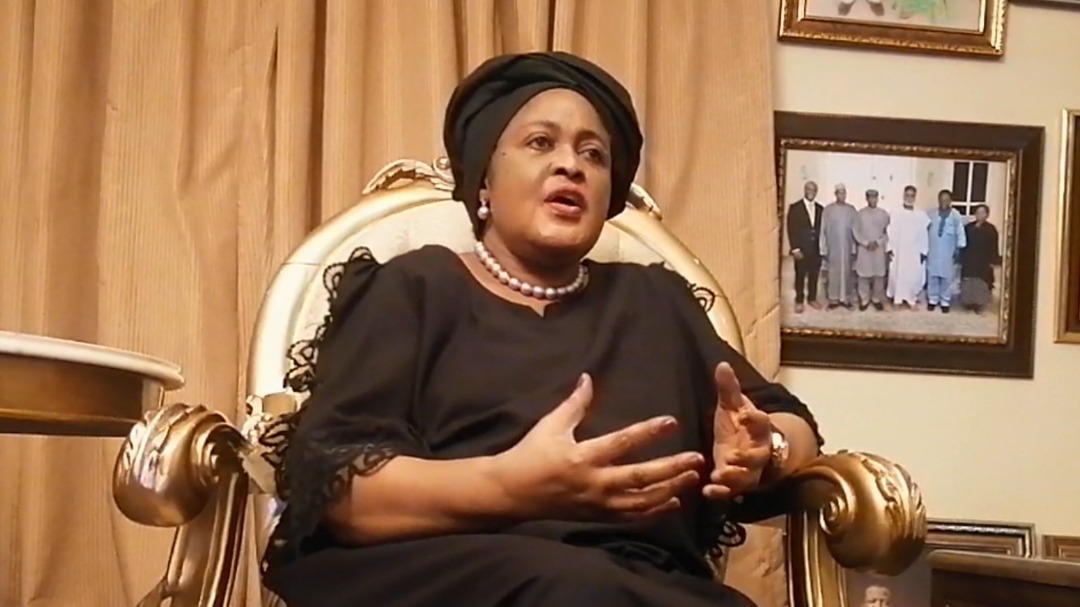Born on 12 May 1952 at Amudi Obizi, Ezinihitte-Mbaise Local Government Area of Imo State, Hon. Justice Mary Ukaego Peter Odili, JSC who bowed out of the Supreme Court of Nigeria on Thursday, May 12, 2022 is the third woman to ascend the Supreme Court bench in Nigeria.
Her closing days at the apex Court were nearly marred by the attempted invasion of her Abuja residence on the night of Friday, October 29, 2021, by security operatives comprising soldiers, officers of the State Security Services (SSS), policemen, and others. It was a move the Supreme Court in a statement described as a mission to kill or maim her. She spoke with Lillian Okenwa on sundry issues.
It is not the big industries that grow nations, but the small cottage industries like we see in china and Italy with those leather shoemakers and their small workshops. China is maximizing their manpower and we need that in Nigeria like yesterday. If we follow through that all over the Federation, we won’t be where we are now. A lot of people looking for white-collar jobs will no longer bother.
During our tenure, Peter promised skills acquisition and God brought Maria Sokenu of blessed memory, the former managing director of People’s Bank. She was part of a group that came to discuss infrastructure development in the state. Peter gave them a private dinner in the government house and I found myself sitting with Maria sokenu. I had heard of her and use to see her on TV, but that was my first time of being in her presence, so, we got talking. She was talking about the Chinese, the Italians, cottage industries and the matter of training the trainers. She said that within four days, somebody could become a hairdresser. What she was talking about seemed far-fetched, but she said they’ve done it somewhere in Lagos and that all she needed was a little empowerment to go get the equipment, the people who will train our locals, and we run with it. I didn’t know my husband was listening to our conversation until I felt him pinching me. He said, don’t let this woman go.
So instead of Maria leaving the following day, she stayed back. The governor gave her the empowerment to go to Lagos to bring the various equipment and manpower and within one week right there at the Civic Centre, various activities were going on. That’s how we got the first crop of trainers. With that, we started moving local government by local government and in less than a year, we had covered all the local governments in the state. Then communities were excited and wanted to be trained. After training, you got the equipment and a small stipend to start your small industry in your house or a shop. In my husband’s community of Ndoni, a lady from there, whom I knew was into catering became our point person., Initially, she was to start with 60 people but she came back to tell me, the hall was too small to take 60 people. Because of the enthusiasm, some of them said they would stay under the trees to learn the trade. And so by the time we were graduating them, there were hundreds of people and they were equipped. Before that happened, Ndoni was a very rural community, but within two-three years, it transformed into a city and everything you need to have done, for your weddings, burials, for whatever functions were produced within. People had begun using their skills.
And Peter was able to get the All-Season Road to the community. Previously, you couldn’t get to my husband’s place without going through a Shell contour. It was like a raft that will contain your cars or vehicles with the person, to ferry you across the Orashi River, and then you drive in. But that is for only the dry season. During the rainy season, the pontoon can no longer do anything because the road is swampy and unmotorable. During the rainy season go by boat, into the community.

When he was Deputy governor, the President then, General Ibrahim Babangida who visited the state was interested in visiting Peter’s community but was told he could only go by helicopter or by boat. At the banquet, he made a pronouncement. That was where he pronounced an all-season road to Abonema in Kalabari land. Before then, you can only access those Kalabari places by boat. That was on the same occasion, he approved the Bodo-Bonny road, but nothing happened. However, because he had pronounced and signed the instrument, it was Federal Government approved. It was the good fortune of having Peter as governor that pushed it under the Obasanjo regime and it was tackled heads on. By 2003, they now had the all-season road and you didn’t need the pontoon or go by boat. This is an oil-producing community to show you what people from the area suffer. Since they got all seasons road, movement of the indigenes in and out was no longer a problem. Peter also had the interlocking of internal roads done. All the roads in Ndoni are paved and, there’s pipe borne because he initiated the gas turbine electricity. Ndoni has 24 hours of electricity.
He actually built the Omoku Gas Turbine, but the federal government insists on distribution and then there is the Eleme gas turbine. That was a programme that was initiated before but it was not functional, so Peter resuscitated it. He now built the big Omoku gas turbine, so there’s electricity, there’s water and there is an all seasons road in Ndoni. The skills acquisition opened up the town. The whole place now became a city.
The problem the Nation has is that instead of continuing the programmes of those who had functioned before, there is a deliberate attitude to denigrate the originator or whatever or whoever was the pioneer of a programme. They want to start something new and it takes time, it takes a lot of money and the old programme is stepped down, so that you don’t put up the name of somebody else. I cannot speak about our skills acquisition training without mentioning Maria Sokenu. She brought it to us, facilitated it and then we enlarged the scope.
Like I said at my valedictory session, the Chief Executive of the Nation, or the Chief Executive in any state must be the commissioner or the minister for this skills acquisition programme, youths’ employment and empowerment. The main minister should be the President or the governor. Because of where we are now, the drive needs to be faster and more effective and only the Chief Executive can do that. The decision has to be immediate, and it is the man with the pen that gives the immediacy to propel it. But when the aide is the one in charge, there will be some lapses. The Rivers State Skills Acquisition programme, had the effect it had because Peter was very passionate and I with my team and many volunteers were interested in helping out. It was really the State government’s programme hence it entered the communities.
The way it is now, youth employment and empowerment programmes need to be driven directly by governors or the president. We’ve gone beyond restiveness. We are now in insurgency. Even children from privileged homes are now sucked into this thing, so it is not something to be done outside the main man. Let no one deceive himself that your family is shielded. No. No, one is shielded. Just like the children of the underprivileged who have no employment are easy targets for these negative tendencies, so are the children from privileged homes. Because the young are vibrant, they are never idle, and the devil they say, the Idle is the devil’s workshop.
I came in 2019 as President of the National Association of Women Judges in Nigeria (NAWJIN). Unfortunately, our tenure was affected by COVID. Fortunately, we had some associations that identified with us and felt that whatever programme we bring to the fore should not be hindered on account of the lockdown. Mrs Boma Alabi, SAN with her outfit partnered with us. We highlighted the need to have a special arrangement for Juveniles or young persons who testify in criminal matters. Or where they are victims, how the evidence concerning them or those close to them and what they have witnessed should be protected. The point was to bring to the fore that, these are children of very sensitive age whose nuances have to be protected and, in a way, shielded while getting at the vital information that will nail all perpetrators in all the various crimes that affect young persons or those close to them. The workshop involved international participators from Australia, the UK and some other international personalities.
Impact? With our communiqué at the end of it, the National Assembly said they would look at legislations that would give it the teeth it needed for taking the evidence of young persons, immediately after the incident takes place or has taken place so that the length of time of the trial will not obfuscate the content of the material. And then even in the courts; how such evidence is taken from young persons. We can only pray and hope that the National Assembly will do the needful.
As inaugural Chairperson of FIDA in Rivers State Port Harcourt, I and my EXCO took it upon ourselves to make findings about the matter of domestic violence and abuse in homes; what happens to widows and all that. We had enlightenment workshops for women, and then we started training on a small scale. We learnt a lot from Enugu FIDA which was more advanced and so these disadvantaged women had access to free legal advice, had their matters prosecuted in court when necessary and for free.
Domestic violence had always been there but it’s not in the magnitude of what we are seeing today. Incest was always there. Again, not in the magnitude we are seeing today. Previously, there was a lot of “let us not expose this relation” but what I see that has now given it a boom is because a lot of people are idle. And because they are idle, the negatives take over. Hence, we now see these things in abominable numbers. People have to be positively engaged. It is an emergency.
Women in violent relationships should run away immediately. They must not stay a second longer than they have already stayed.





